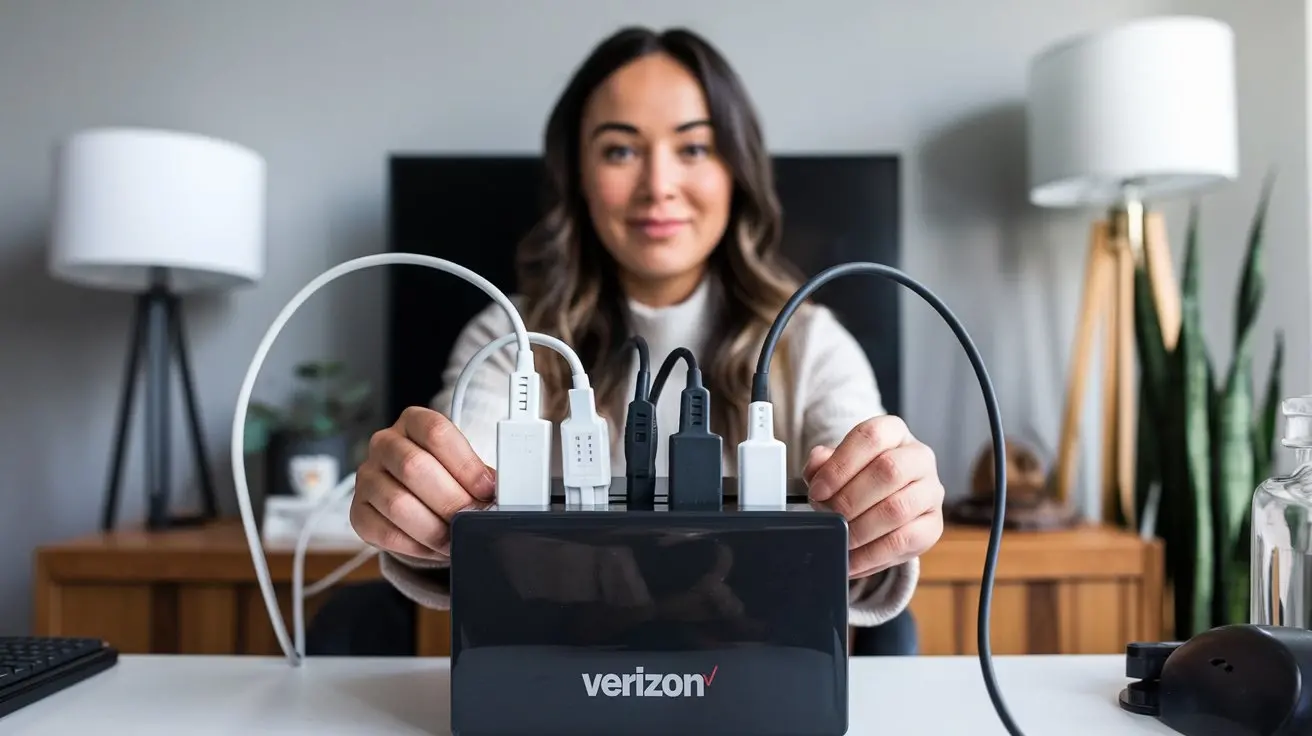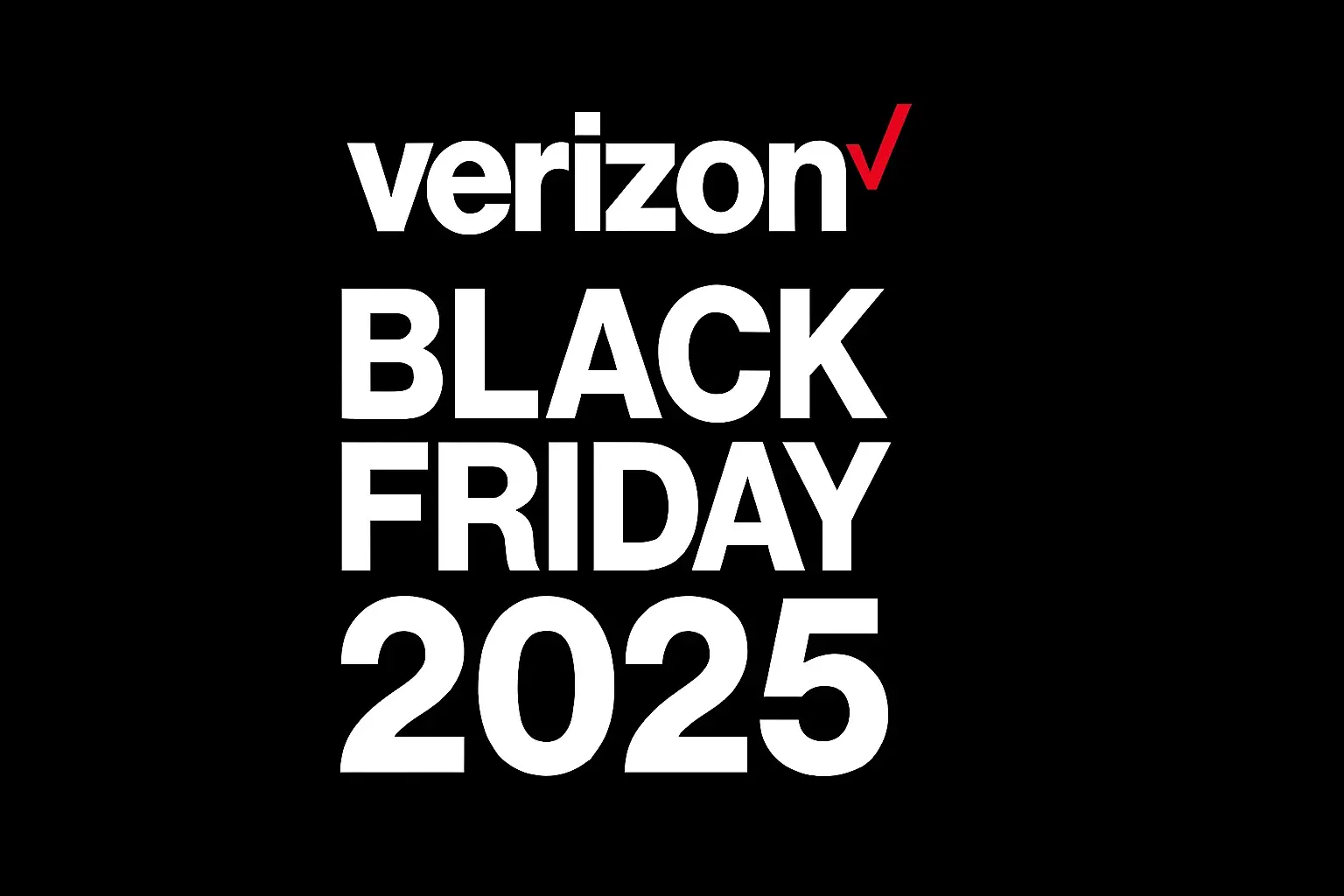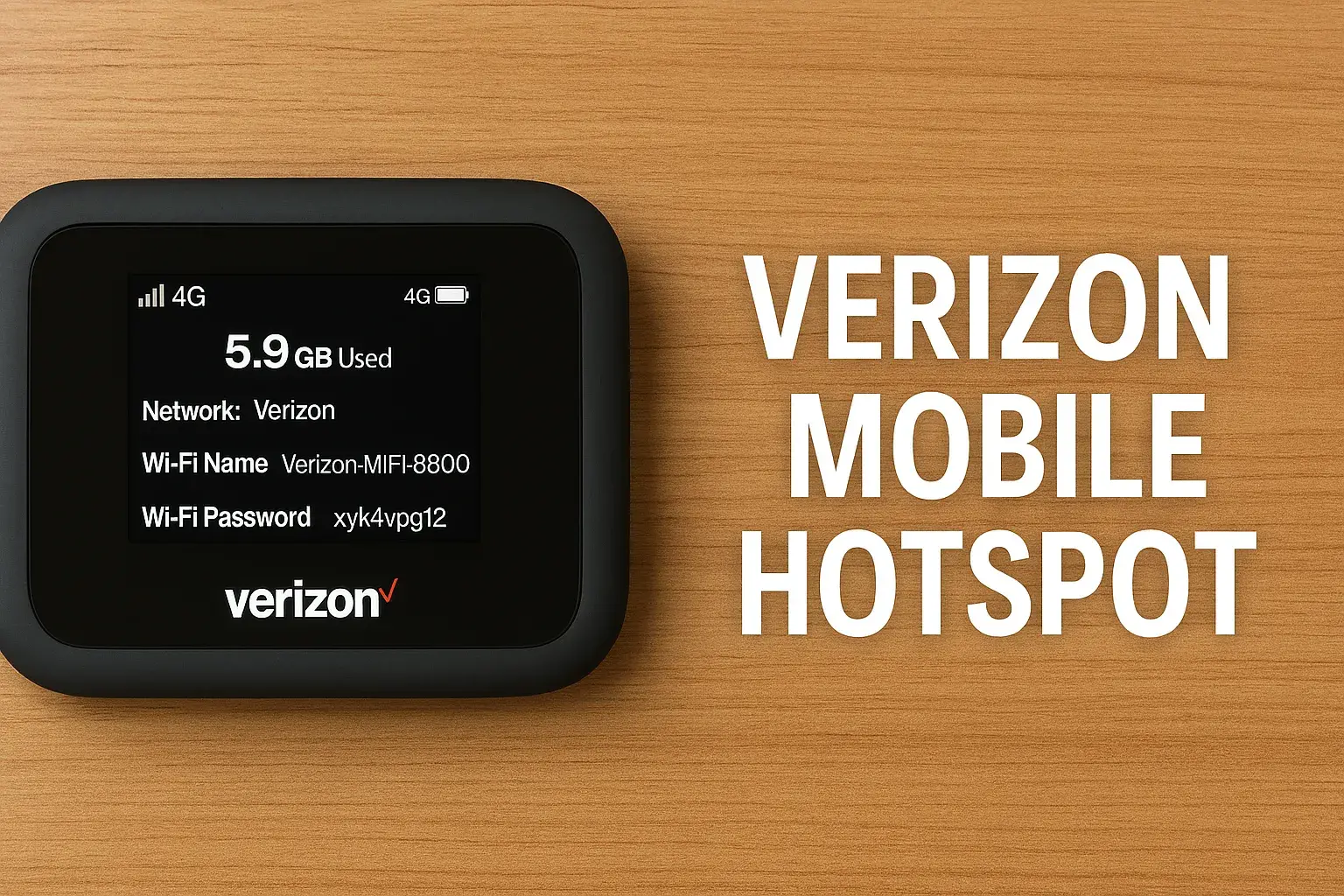How to Choose the Right Verizon Cable Package for Your Home

Choosing the right Verizon cable package can feel overwhelming, but it doesn't have to be. This guide breaks down Verizon's offerings, from TV channels and internet speeds to bundling opportunities and hidden costs, empowering you to select a plan that perfectly fits your home's entertainment and connectivity needs for 2025.
Understanding Your Needs: The First Step
Before diving into the specifics of Verizon's extensive menu of services, the most crucial step is to accurately assess your household's unique requirements. This foundational understanding will prevent you from overpaying for services you don't use or being frustrated by insufficient bandwidth or channel selection. Think of it as building a house; you wouldn't start framing without a blueprint. Similarly, you shouldn't pick a Verizon package without a clear picture of your needs.
Assessing Your Entertainment Habits
Your television viewing habits are a primary driver in selecting a TV package. Consider the following questions:
- Who watches TV in your household? Different age groups and interests will have varying channel preferences.
- What are your must-have channels? List out the specific sports networks, movie channels, news channels, and general entertainment channels your family can't live without.
- How often do you watch live TV versus on-demand content? If you're a binge-watcher who primarily uses streaming apps, a basic TV package might suffice, supplemented by your own streaming subscriptions. If you rely heavily on live sports or breaking news, a more comprehensive package is essential.
- Do you have children? If so, what are their viewing preferences? Consider educational channels, cartoons, and family-friendly movie options.
- Are you a sports fanatic? Specific sports packages often require higher-tier TV plans or add-ons. Identify the leagues and teams you follow.
- Do you enjoy premium movie channels? Channels like HBO, Showtime, or Cinemax come with additional monthly costs and are typically found in higher-tier packages or as add-ons.
Evaluating Your Internet Usage
Internet speed is no longer a luxury; it's a necessity. However, the "fastest is always best" mentality can lead to unnecessary expenses. Evaluate your household's internet activities:
- How many devices connect to your Wi-Fi simultaneously? Think smartphones, tablets, laptops, smart TVs, gaming consoles, smart home devices (thermostats, lights, security cameras). Each device consumes bandwidth.
- What are your primary online activities?
- Basic browsing and email: Low speeds are sufficient.
- Streaming video (Netflix, Hulu, YouTube): Requires moderate to high speeds, especially for HD or 4K content.
- Online gaming: Demands low latency and high, consistent speeds for a smooth experience.
- Video conferencing (Zoom, Teams): Requires stable upload and download speeds, particularly for multiple simultaneous calls.
- Large file downloads/uploads: Think creative professionals or heavy cloud users. High speeds are crucial.
- Are there any work-from-home requirements? If you or someone in your household works remotely, reliable and fast internet is non-negotiable.
- Do you have gamers in the house? Online multiplayer gaming requires consistent, low-latency connections.
Considering Phone Services
While less common now with the rise of mobile phones, some households still opt for landline service. If this applies to you:
- Do you currently have a landline?
- What are your calling habits? Do you make frequent long-distance calls?
- Is landline reliability a concern for emergency situations?
Verizon offers Fios Digital Voice, which can be bundled with TV and internet services, often providing cost savings compared to separate services.
Verizon TV Packages: A Deep Dive
Verizon offers its TV services primarily through Fios, its fiber-optic network. Fios TV provides a high-quality viewing experience with crisp picture resolution. The packages are tiered, meaning you start with a base package and can add premium channels or sports packages. As of 2025, Verizon continues to refine its offerings, but the core structure remains consistent.
Understanding Fios TV Tiers
Verizon typically structures its Fios TV packages into several tiers, each offering a different number of channels and features. While exact package names and channel lineups can change, the general progression is from basic to comprehensive.
The Essentials Package (or Similar Entry-Level Tier)
This is Verizon's most basic TV offering. It's designed for viewers who don't need a vast array of channels but want access to local programming, major networks, and a selection of popular cable channels. Expect channels like:
- Local Broadcast Channels (ABC, CBS, NBC, FOX, PBS)
- Basic Cable News (CNN, Fox News, MSNBC)
- General Entertainment (TBS, TNT, USA Network, FX)
- Kids Channels (Nickelodeon, Disney Channel)
Who is it for? Households that primarily watch local news and a few popular shows, or those who supplement with streaming services extensively.
The Preferred HD Package (or Similar Mid-Tier)
This package significantly expands the channel selection, adding more variety for different interests. It's a popular choice for families with diverse viewing preferences.
- Includes all channels from the Essentials package.
- More Sports Channels (ESPN, ESPN2, Fox Sports 1)
- More Movie Channels (AMC, HGTV, Food Network)
- More News Options
- Potentially more international or niche channels.
Who is it for? Families who want a good balance of popular channels, sports, and entertainment without the highest-tier cost. It's a solid all-around option.
The Premium HD Package (or Similar High-Tier)
This is Verizon's most comprehensive Fios TV package, offering the widest selection of channels. It's designed for the avid TV watcher who wants access to almost everything.
- Includes all channels from the Preferred HD package.
- Premium Movie Channels (HBO, Showtime, Starz, Cinemax) – often bundled or available as add-ons.
- Expanded Sports Coverage (NFL Network, NBA TV, MLB Network, regional sports networks).
- More Documentary Channels (Discovery, National Geographic).
- More Lifestyle and Niche Channels.
Who is it for? Cinephiles, dedicated sports fans, and households that consume a vast amount of television content and want maximum choice.
Add-On Packages and Premium Channels
Beyond the main tiers, Verizon offers numerous add-on packages to customize your Fios TV experience:
- Sports Packages: Essential for serious sports fans, these can include channels like the NFL RedZone, NHL Network, NBA League Pass, MLB Extra Innings, and various regional sports networks. These are often quite expensive but indispensable for dedicated fans.
- Premium Channel Packs: If you don't opt for the top-tier package, you can often add individual premium channels or bundles like HBO Max, Showtime Anytime, Starz, and Cinemax.
- International Channel Packs: For those with specific language or cultural viewing needs, Verizon offers packages for various regions (e.g., Spanish, Asian, European).
- Kids & Family Packs: Sometimes, additional children's programming channels are available as add-ons.
Understanding Fios TV Features
Fios TV isn't just about channels; it also includes features that enhance the viewing experience:
- On-Demand Library: Access to a vast library of movies and TV shows available to watch anytime.
- DVR Service: Verizon offers DVR (Digital Video Recorder) options, allowing you to record live TV, pause, rewind, and fast-forward. The number of channels you can record simultaneously and the storage capacity vary by the DVR plan you choose.
- Multi-Room DVR: This allows you to watch and manage recordings from multiple TVs in your home.
- Fios TV App: Access live TV and On Demand content on your mobile devices, tablets, and computers, both inside and outside your home.
Internet Speed: How Much Do You Really Need?
Verizon Fios offers some of the fastest internet speeds available, particularly with its fiber-optic network. However, understanding what speed tier best suits your needs is critical to avoid overspending. Internet speeds are measured in Megabits per second (Mbps) for both download and upload.
Understanding Download vs. Upload Speeds
Download speed is how quickly you can receive data from the internet to your device. This is crucial for streaming video, browsing websites, and downloading files.
Upload speed is how quickly you can send data from your device to the internet. This is important for video conferencing, uploading files to cloud storage, and online gaming.
Fiber optic internet, like Verizon Fios, typically offers symmetrical speeds, meaning your upload speeds are as fast as your download speeds, which is a significant advantage over cable internet.
Speed Tiers and Their Use Cases (2025 Data)
Verizon Fios offers a range of speed tiers. Here's a breakdown of common speeds and what they're suitable for:
Up to 300 Mbps (Download/Upload)
Description: This is a solid entry-level speed for fiber internet. It's significantly faster than most DSL or basic cable plans.
Ideal For:
- Small households (1-2 people).
- Basic internet activities: web browsing, email, social media.
- Streaming HD video on 1-2 devices simultaneously.
- Occasional video calls.
- Light online gaming.
Limitations: May struggle with multiple high-bandwidth activities happening at once, such as multiple 4K streams or intensive online gaming sessions with large downloads.
500 Mbps (Download/Upload)
Description: A very popular mid-tier speed that offers a significant upgrade in performance.
Ideal For:
- Medium-sized households (2-4 people).
- Streaming HD and 4K video on multiple devices simultaneously.
- Smooth online gaming experiences.
- Frequent video conferencing for multiple users.
- Faster downloads and uploads for larger files.
- Supporting a growing number of smart home devices.
Considerations: This is often the sweet spot for many households, offering excellent performance without the premium price of the highest tiers.
Gigabit Speeds (1 Gig, or 1000 Mbps Download/Upload)
Description: This is Verizon's top-tier speed offering, providing incredibly fast and responsive internet.
Ideal For:
- Large households (4+ people) with heavy internet users.
- Households with multiple simultaneous 4K streamers.
- Serious online gamers who demand the lowest latency and fastest downloads.
- Professionals who regularly upload/download very large files (e.g., video editors, graphic designers).
- Extensive use of smart home devices.
- Future-proofing your home network for increasing bandwidth demands.
Considerations: While incredibly fast, most households may not fully utilize the full capacity of gigabit speeds regularly. However, if budget allows and you have demanding users, it provides unparalleled performance.
Factors Influencing Your Speed Choice
When selecting your internet speed, consider these factors:
- Number of Users: More people using the internet simultaneously means more bandwidth is needed.
- Number of Devices: Each connected device, from phones to smart thermostats, consumes some bandwidth.
- Activity Type: Streaming 4K video and online gaming are far more demanding than checking email.
- Work-from-Home Needs: If your job requires constant, reliable, high-speed connectivity, don't skimp.
- Future Needs: Technology evolves, and bandwidth demands tend to increase over time.
A good rule of thumb is to start with a speed tier that comfortably covers your current needs and allows for some buffer. You can often upgrade your speed later if you find it's insufficient, though downgrading might be more complex or subject to plan changes.
Bundling for Savings: TV, Internet, and Phone
One of the most attractive aspects of subscribing to Verizon services is the ability to bundle TV, internet, and phone. Bundling typically offers significant cost savings compared to subscribing to each service individually. Verizon Fios bundles are designed to be convenient and budget-friendly.
The Benefits of Bundling
- Cost Savings: This is the primary driver for most consumers. Verizon often provides discounts on each service when they are bundled together.
- Simplified Billing: Instead of multiple bills from different providers, you receive one consolidated bill from Verizon, making account management easier.
- Convenience: Dealing with a single provider for your essential home services simplifies customer service interactions and troubleshooting.
- Exclusive Offers: Bundled packages sometimes come with special promotions, such as free equipment upgrades, installation discounts, or streaming service perks.
Common Verizon Fios Bundle Configurations
Verizon typically offers bundles that combine different tiers of Fios TV, Fios Internet, and Fios Digital Voice. Here are some common configurations you might encounter in 2025:
Internet + TV Bundles
These are the most popular bundles. They combine a chosen Fios Internet speed tier with a Fios TV package (e.g., Essentials, Preferred HD). These bundles are excellent for households that primarily need entertainment and connectivity.
Example: 500 Mbps Internet + Preferred HD TV package.
Internet + TV + Phone Bundles
These comprehensive bundles include Fios Internet, Fios TV, and Fios Digital Voice. They are ideal for households that still utilize a landline or want the complete home communication solution.
Example: Gigabit Internet + Premium HD TV + Digital Voice.
Internet-Only Plans
While not technically a bundle, it's important to note that Verizon also offers standalone Fios Internet plans for those who prefer to use streaming services for all their TV needs or have a separate TV provider.
Tips for Choosing the Right Bundle
When selecting a bundle, follow these steps:
- Start with your non-negotiables: Determine the minimum internet speed and the minimum TV channel lineup you absolutely need based on your earlier assessment.
- Identify the closest matching bundle: Look for bundles that include your required internet speed and TV tier.
- Consider the next tier up: Sometimes, stepping up one tier in either internet speed or TV package within a bundle might offer a surprisingly small price increase for a significant increase in value. For example, a $10-$15 jump in price might get you double the internet speed or a much more comprehensive TV channel lineup.
- Evaluate the phone service: If you don't need a landline, a bundle that includes Digital Voice might be more expensive than an Internet + TV bundle. Ensure you're not paying for a service you won't use. You might be able to opt out or choose an Internet + TV bundle instead.
- Look for promotions: Always ask about current new customer promotions, contract lengths, and any introductory pricing that will increase after a promotional period.
Internal Link Example: For more on maximizing savings, read our guide on Understanding Pricing and Hidden Fees.
Understanding Pricing and Hidden Fees
The advertised price for Verizon packages is often just the starting point. It's crucial to understand the full cost, including potential fees, equipment charges, and promotional period expirations, to avoid surprises on your bill.
Base Package Pricing
Verizon Fios packages are typically advertised with a monthly price. This price often reflects a promotional discount that lasts for a specific period, usually 12 or 24 months. After this period, the price will increase to the standard rate.
Equipment Rental Fees
You will likely need to rent equipment from Verizon, such as a modem/router (for internet) and a set-top box/DVR (for TV). These come with monthly rental fees that add to your total bill.
- Internet Equipment: A modem/router is essential for Fios internet.
- TV Equipment: A Fios TV set-top box is required for each television you want to connect to the service. If you opt for DVR service, there will be additional costs associated with the DVR box and potentially multi-room DVR functionality.
Note: In some cases, you might be able to purchase your own compatible equipment to avoid rental fees, but this is less common with fiber optic services like Fios and requires careful research to ensure compatibility and avoid voiding warranties or support.
Installation Fees
Verizon Fios requires professional installation, especially for new customers or when extending service to new areas of the home. There is typically a one-time installation fee. However, this fee is often waived or heavily discounted as part of new customer promotions.
Broadcast TV Fees and Regional Sports Fees
These are common "hidden" fees that appear on most cable and satellite bills. They are charges that TV providers pass on to customers to cover the costs of carrying local broadcast channels and regional sports networks. These fees can fluctuate and add a few dollars to your monthly bill.
Taxes and Surcharges
In addition to the above, your bill will include various federal, state, and local taxes and regulatory fees. These vary by location and are applied to the total service cost.
Contract Terms and Early Termination Fees (ETFs)
Many Verizon Fios packages come with a contract, typically 12 or 24 months. Signing a contract often locks in a lower promotional price. If you terminate the service before the contract term is up, you will likely incur a substantial Early Termination Fee (ETF).
Consideration: Some plans might be offered without a contract, but these usually come at a higher monthly rate. Weigh the potential savings of a contract against the risk of an ETF if your circumstances change.
How to Get the Best Price
- Negotiate: Don't be afraid to call Verizon sales and inquire about the best available deals, especially if you're switching from another provider or are a returning customer.
- Compare Bundles: As discussed, bundling is usually the most cost-effective approach.
- Ask About Promotions: Always ask for current new customer offers, installation deals, and any limited-time discounts.
- Read the Fine Print: Before signing up, carefully review the contract and service agreement to understand all fees, contract lengths, and what happens after the promotional period ends.
- Check Competitor Pricing: Knowing what other providers in your area offer can give you leverage.
Internal Link Example: For a detailed comparison of Verizon's offerings, see our Verizon TV Packages Overview.
Installation and Equipment: What to Expect
Once you've chosen your Verizon Fios package, the next step is installation. Understanding the process and the equipment involved can make it a smooth experience.
The Fios Installation Process
Verizon Fios uses fiber-optic technology, which requires running new lines to your home. This means a technician will visit your residence to set up the service.
- Scheduling: After signing up, you'll schedule an appointment for the installation. You'll typically receive a window of time for the technician's arrival.
- Exterior Work: The technician will assess the best way to bring the fiber optic cable to your home. This might involve connecting to existing utility poles or underground conduits. They will run a thin fiber optic cable from the outside to a designated point inside your home.
- Interior Work: Inside, the technician will install a Network Interface Device (NID) or Optical Network Terminal (ONT). This device converts the optical signal into an electrical signal that your home network can use. The ONT is usually placed near where your main internet and TV equipment will be located.
- Equipment Setup: The technician will then connect your Verizon-provided modem/router and Fios TV set-top boxes to the ONT. They will ensure the internet is active and that TV channels are being received correctly.
- Wi-Fi Setup: They will help you set up your Wi-Fi network name (SSID) and password.
- Testing: The technician will perform tests to confirm that your internet speed is as expected and that all TV services are functioning properly.
- Demonstration: They will often walk you through the basic operation of your equipment and services, answering any immediate questions you may have.
Duration: The installation process typically takes 2-4 hours, depending on the complexity of the setup and the number of TVs being connected.
Verizon Fios Equipment
Verizon provides essential equipment for its Fios services:
Fios Home Router (Modem/Router Combo)
This device is crucial for your Fios internet connection. It connects to the ONT and broadcasts your Wi-Fi signal throughout your home. Verizon's routers are designed to handle the high speeds of Fios and support features like Wi-Fi 6.
Fios TV Set-Top Boxes and DVRs
Each television you wish to connect to Fios TV will require a set-top box. These boxes receive the TV signal and convert it for display on your TV. If you opt for DVR service, you will receive a DVR box, which allows you to record, pause, and rewind live TV.
- Standard Set-Top Box: For basic TV viewing.
- Fios DVR: Offers recording capabilities. You might need to rent multiple DVRs or a multi-room DVR system for comprehensive recording across your home.
What You Need to Provide
- Access: Ensure the technician has clear access to the areas where they need to work, both inside and outside your home.
- Power Outlets: The ONT, router, and set-top boxes require power, so ensure there are accessible electrical outlets nearby.
- Coaxial Cable Outlets (for TV): While Fios delivers the signal via fiber to the ONT, older TV setups might still use coaxial cables to connect the set-top box to the wall outlet. Ensure these are present if needed.
- Your Wi-Fi Password: If you want to use your existing Wi-Fi name and password, have it ready.
Self-Installation vs. Professional Installation
For Fios Internet, in some cases, Verizon may offer a self-installation option if the fiber optic line is already active at your home. However, for new Fios TV installations or when bringing Fios to a new address, professional installation is almost always required. Professional installation ensures the service is set up correctly and optimized for performance.
Making the Final Decision
You've assessed your needs, explored Verizon's offerings, understood the pricing, and know what to expect from installation. Now it's time to synthesize this information and make the best choice for your home.
Recap of Key Considerations
- Entertainment Needs: Prioritize your must-have TV channels. Do you need premium movie channels or extensive sports coverage?
- Internet Speed Requirements: Match your internet speed to your household's usage – streaming, gaming, working from home, and the number of connected devices.
- Bundling Benefits: Bundling TV, internet, and potentially phone services almost always leads to the best value and simplified billing.
- Budget: Be realistic about what you can afford. Factor in promotional pricing, standard rates after promotions, equipment fees, and taxes.
- Contract vs. No Contract: Weigh the savings of a contract against the flexibility of a month-to-month plan.
Creating a Comparison Table (Example for 2025)
To help visualize your options, consider creating a personal comparison table. Here’s a simplified example:
| Feature | Option A: Internet + Basic TV Bundle | Option B: Internet + Preferred TV Bundle | Option C: Internet + Premium TV Bundle |
|---|---|---|---|
| Internet Speed | 500 Mbps | 500 Mbps | Gigabit (1000 Mbps) |
| TV Package | Essentials HD | Preferred HD | Premium HD (incl. some premium channels) |
| Key Channels | Local, basic cable news, general entertainment | All Essentials + more sports, movies, lifestyle | All Preferred + premium movie channels, expanded sports |
| Estimated Monthly Cost (Promo Price) | $120 | $150 | $190 |
| Estimated Monthly Cost (After Promo) | $150 | $185 | $240 |
| Equipment Fees (Monthly) | $20 | $25 | $30 |
| Contract Term | 24 Months | 24 Months | 12 Months |
| Best For | Light users, budget-conscious | Average families, balanced needs | Heavy users, movie buffs, sports fanatics |
Note: These prices are illustrative for 2025 and actual costs will vary based on location, specific promotions, and package configurations. Always get a personalized quote from Verizon.
Final Steps Before Signing Up
- Get a Personalized Quote: Visit the Verizon website or call a sales representative to get an exact quote for the packages you are considering in your specific area.
- Confirm Promotion Details: Understand exactly how long the promotional pricing lasts and what the price will be afterward. Ask about any introductory offers on equipment or installation.
- Review the Contract Carefully: Pay close attention to the contract length, cancellation policy, and any fees associated with early termination.
- Ask About Installation: Clarify the installation process, what the technician will do, and if there are any specific requirements for your home.
By following these steps, you can confidently select a Verizon cable package that provides the right balance of entertainment, connectivity, and value for your household.
Conclusion: Your Path to the Perfect Verizon Package
Navigating the world of Verizon Fios packages doesn't have to be a daunting task. By systematically assessing your household's viewing habits, internet speed requirements, and potential phone service needs, you lay the groundwork for an informed decision. Remember that Verizon's strength lies in its fiber-optic network, offering robust internet speeds and high-quality TV service. Bundling these services is almost always the most economical and convenient route, simplifying your bills and often unlocking significant discounts. Pay close attention to the details of pricing, including promotional periods, equipment rental fees, and potential hidden charges, to ensure you're getting the best long-term value. Finally, understand the professional installation process and the equipment provided to set clear expectations. With this comprehensive approach, you are well-equipped to choose the Verizon Fios package that perfectly aligns with your home's demands and your budget for 2025 and beyond.
Faq
How do I know if Verizon Fios is available in my area?
Use Verizon’s coverage checker online to confirm availability.
Can I switch packages mid-contract?
Verizon allows upgrades or downgrades, often without penalties.
Is installation free with Verizon Fios?
Installation fees may vary, but promotions frequently waive these costs.
What happens if I cancel my subscription early?
Be aware of early termination fees, which can range from $175 to $350 depending on your contract.





